Reshaping Industries:
Understanding the EU’s ban on PFAS and its impact on SMEs
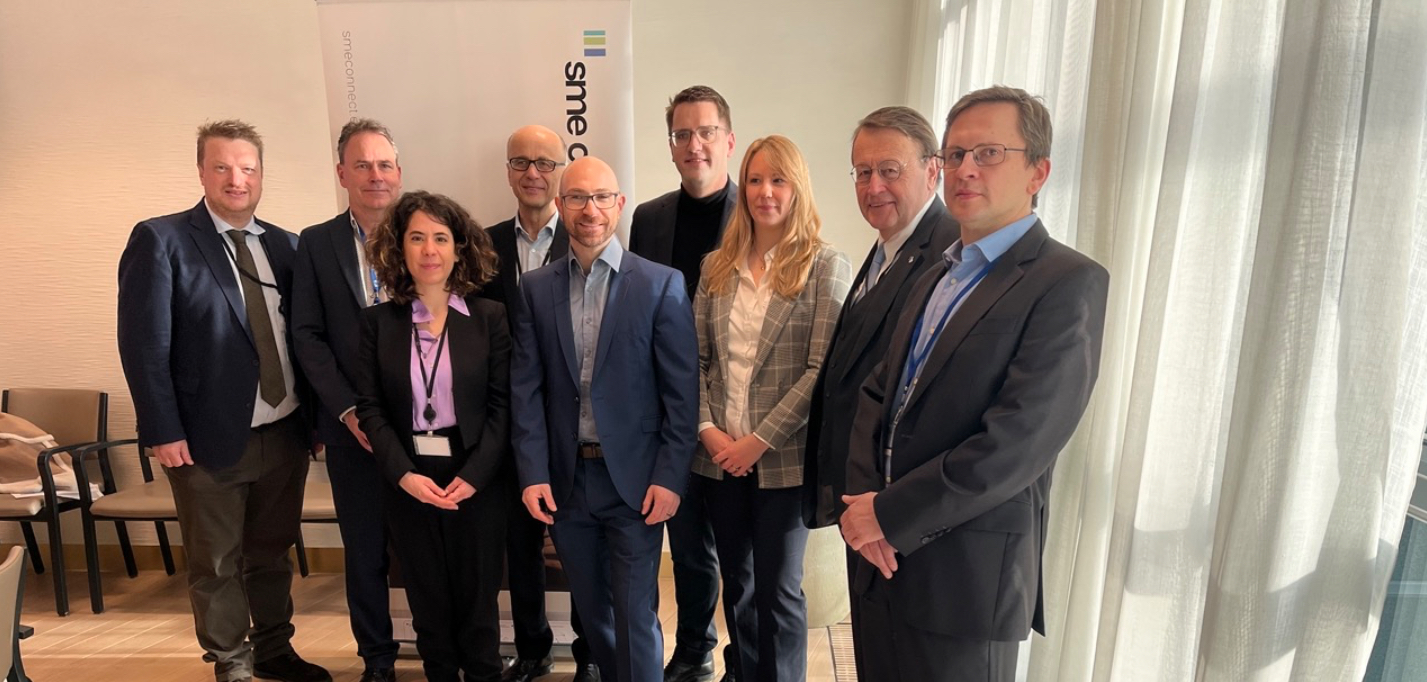
On Wednesday, March 20th, SME Connect organised a working breakfast on the topic of „Reshaping Industries: Understanding the EU’s ban on PFAS and its impact on SMEs“. Event was hosted by CHRISTIAN DOLESCHAL MEP, taking place in the European Economic and Social Committee. The panel featured eminent experts, including MARTIJN BEEKMAN, Policy Officer at DG GROW, European Commission; MARKUS SUSNIK, Advisor to the Secretary General on Chemicals Policy at SMEunited; Expert for Chemicals Law and Politics at Austrian Federal Economic Chamber; DR. ROLAND APPEL, Deputy Managing Director at Bavarian Chemical Associations; FREDERIKE KREBS, Adviser Environmental & Sustainability Affairs at VDMA European Office; ATHINA GIANNOUTSOU, Associate Director Public Affairs at European Federation of Pharmaceutical Industries and Associations and MARTIN SAECKL, Public Affairs Manager at Daikin Chemicals. The discussion was moderated by DR. HORST HEITZ, Chair of the Steering Committee of SME Connect.
DR. HORST HEITZ initiated the discussion and pointed out the importance of discussing the widespread impact of PFAS chemicals across various industries, including textiles, medical, and high-tech sectors, especially from the perspective of small and medium-sized enterprises (SMEs), considering the implications on both supply chains and ecosystems. He raised questions about the feasibility of substituting these chemicals and highlighted the potential uncertainties and investment impacts resulting from ongoing discussions and potential regulations. SMEs need to understand the full impact of PFAS regulations, as it directly as well as indirectly affects various businesses within the industry.
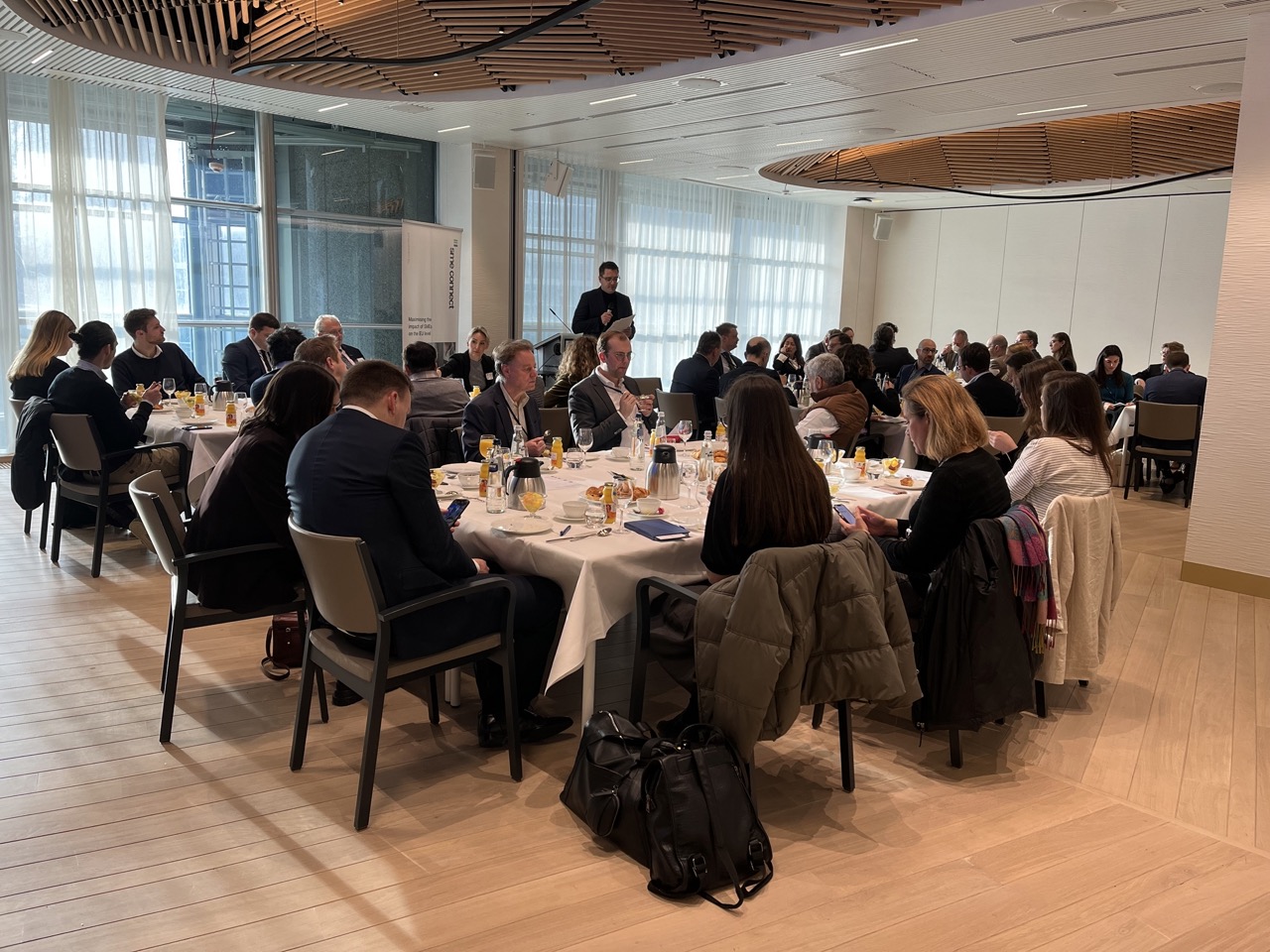
CHRISTIAN DOLESCHAL MEP stated in his opening words that the high level of participation in the public compulsion makes it clear that PFAS are extremely important in many applications. For instance, for many medical applications, there are no equivalent alternatives on the market. On the other hand, it is also a fact that such chemicals can cause problems for humans and the environment when they are released, stressing the need for a balanced approach while recognising the indispensable role of PFAS in critical sectors. He advocated for solutions that promote sustainability without compromising Europe’s competitiveness or driving companies to relocate to regions with less stringent regulations. Christian emphasised the importance of fostering innovation within the European chemical industry to support the transition towards greener alternatives while safeguarding SMEs’ interests.
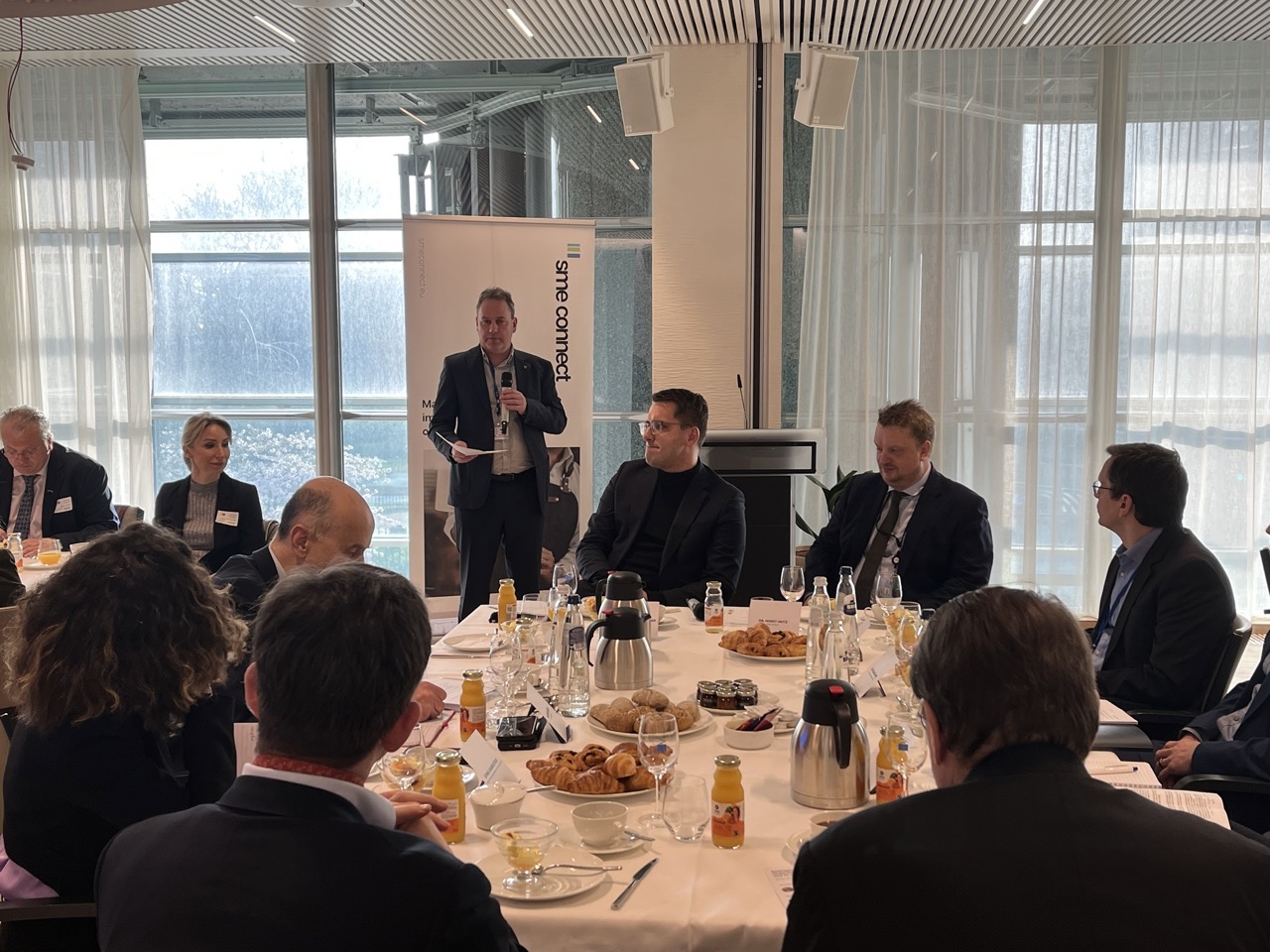
Representing the European Commission, MARTJIN BEEKMAN provided a comprehensive overview of the ongoing discussions surrounding the proposed ban on PFAS chemicals in the European Union. While emphasizing that there won’t be a complete ban on PFAS, he underscored the substantial consideration being devoted to these chemicals due to their extensive use across society. He stressed the necessity of addressing PFAS pollution while also recognizing their indispensable role in numerous industries. The proposal submitted by five countries aims to restrict PFAS with certain derogations, sparking discussions about which derogations will be allowed and under what conditions. Beekman highlighted the need for a pragmatic approach, considering the importance of PFAS in certain critical applications, such as medical devices. He explained the multi-step process involving the European Chemicals Agency, scientific committees, and public consultations in assessing the proposal’s impact and formulating recommendations. Martjin stressed the need for thorough analysis, considering both risks and alternatives, before finalizing any decisions. While acknowledging the complexity and uncertainty surrounding the timeline of the process, he assured the Commission’s commitment to supporting SMEs and ensuring access to alternatives if needed.
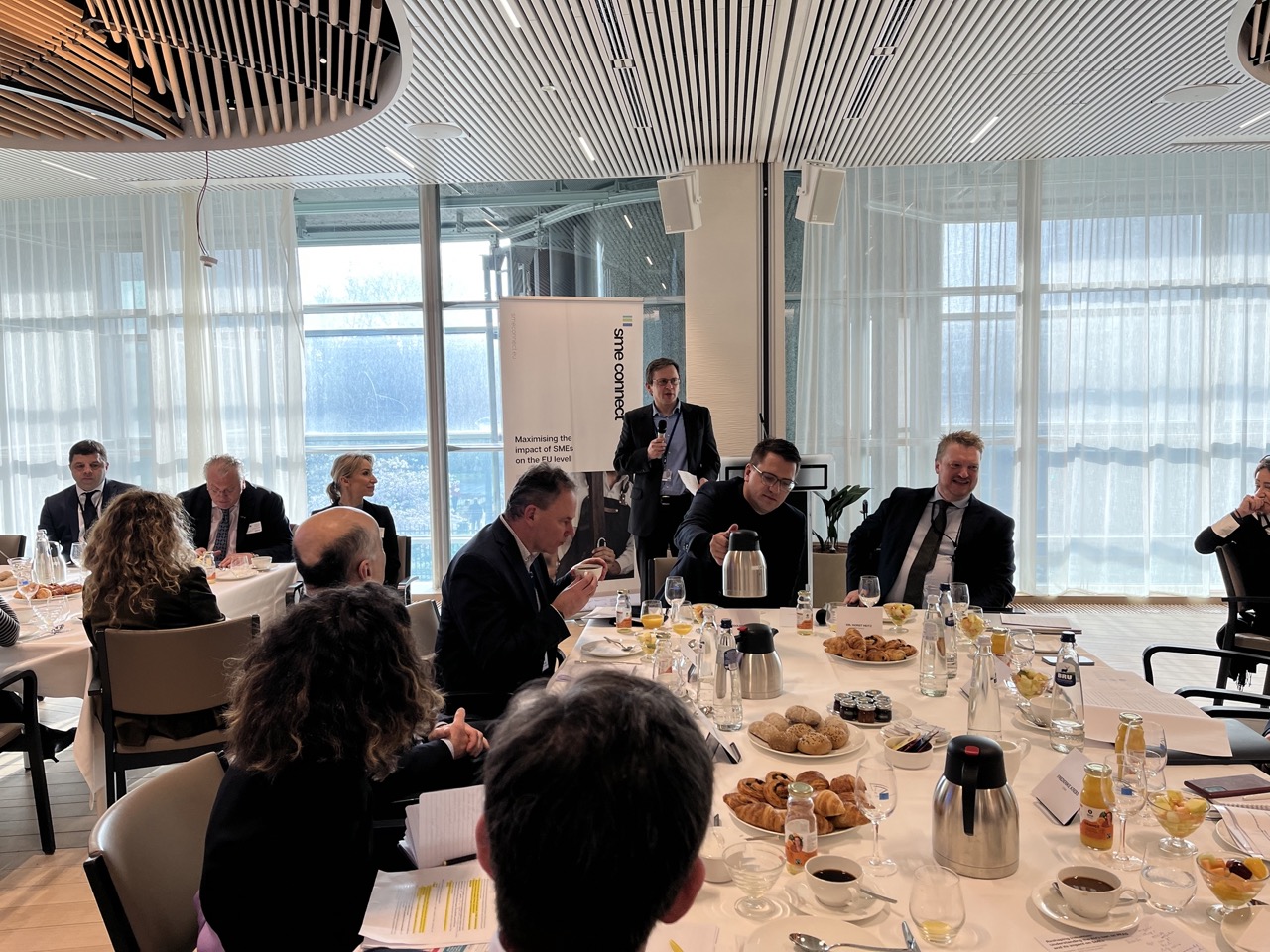
From the viewpoint of SMEs, MARKUS SUSNIK underscored the significant implications of the proposed ban on PFAS chemicals within the European Union. He highlighted the profound impact the ban has had on both industries and SMEs, pointing out the critical need for a more appropriate legislative approach. Markus pointed out the vast number of chemicals under consideration, numbering between ten to twelve thousand, and the immense challenge this presents in terms of technical implementation. He expressed concern over the current process of restriction, citing the lack of SME participation in public consultations and advocating for improved mechanisms to address this issue. Additionally, he criticized the approach of proposing a blanket ban followed by attempts to rectify its shortcomings during consultations, stressing the need for a more strategic and politically informed decision-making process. Markus concluded by advocating for a shift towards the ordinary legislative procedure to ensure a more thorough and effective approach to addressing the complexities of PFAS regulation.
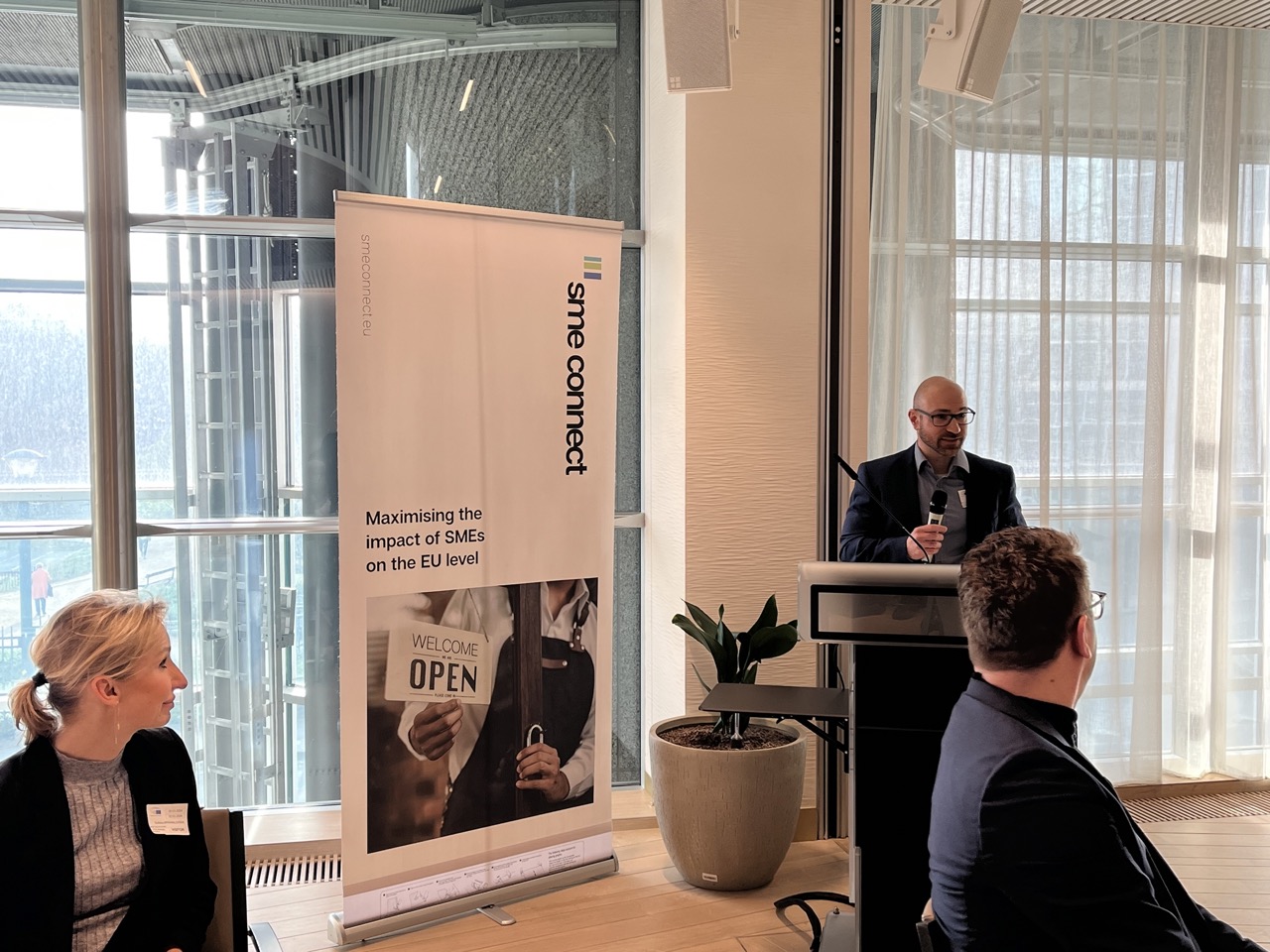
DR. ROLAND APPEL, from the Bavarian Chemical Association, shed light on the far-reaching implications of the proposed ban on PFAS chemicals, highlighting Bavaria’s significant contribution to sustainable technologies through the production of essential materials like polycrystalline silicon and fluoropolymers. However, he expressed grave concerns over the undifferentiated and disproportionate nature of the proposed ban, which fails to consider the diverse applications and critical uses of PFAS. Appel emphasized the importance of taking into account the intricate value chains and potential conflicts with other political objectives, such as the Green Deal and strategic economy initiatives within the European Union. Appel highlighted the potential harm to industries, especially SMEs, heavily reliant on PFAS for equipment and production. He warned of cascading effects in industrial safety and market impacts, with some manufacturers already closing due to regulatory uncertainty. Urging for a nuanced approach, Roland emphasized the importance of considering PFAS’s role in innovation and high-tech applications. He called for clear signals from policymakers to maintain European industry resilience and avoid over-reliance on non-European sources. Ultimately, he advocated for a balanced regulatory framework that addresses environmental concerns while safeguarding PFAS’s vital contributions to the economy.
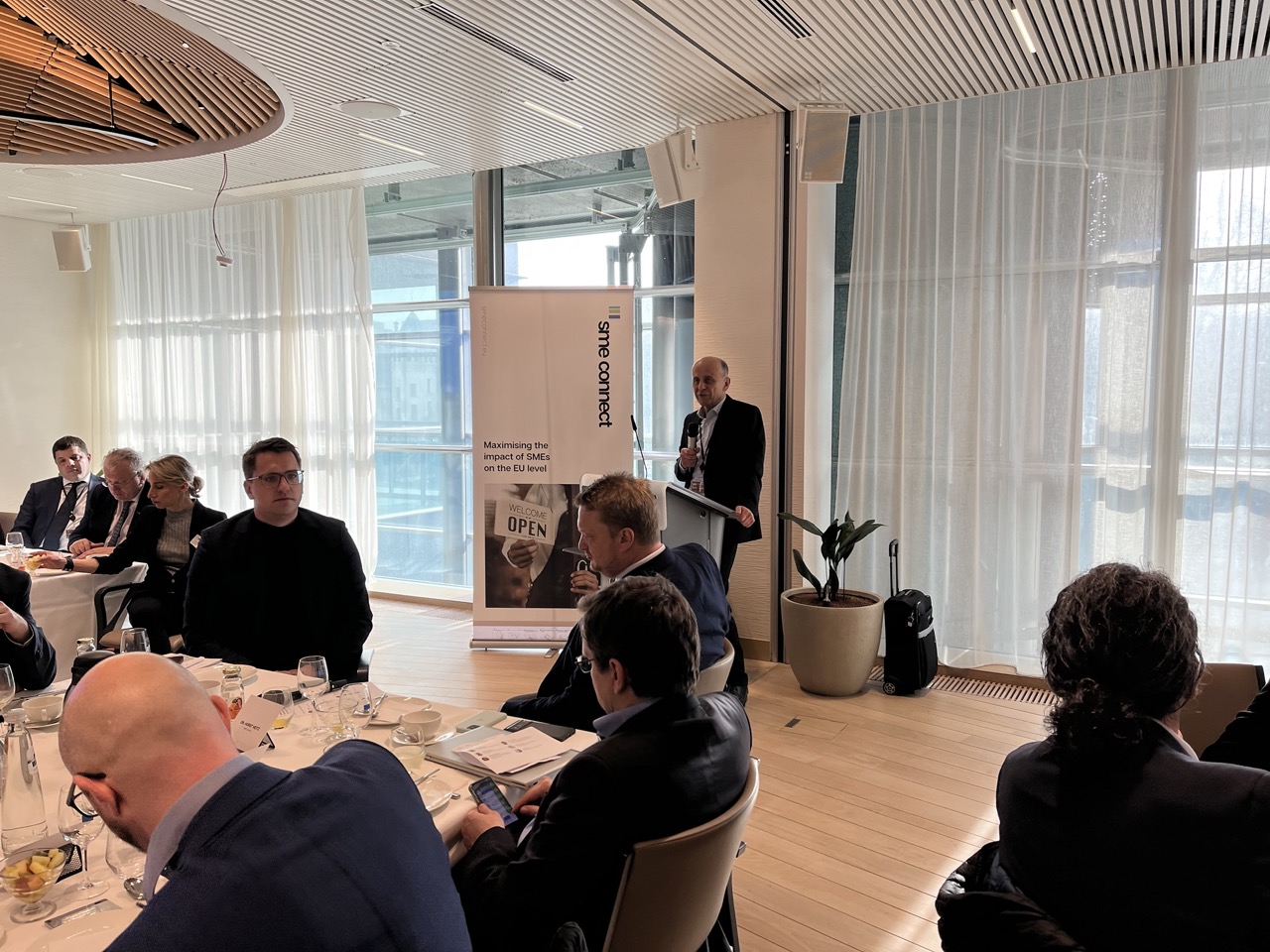
MARTIN SAECKL, operating with a clientele from the key countires, primarily comprising SMEs, highlighted the challenges posed by the PFAS restriction, particularly the all-uses approach adopted. Despite extensive efforts to engage with customers and explore alternative solutions, many critical applications remain at risk due to resource constraints among SMEs. Martin underscored the crucial role of PFAS in research and development, particularly within SMEs, owing to their unique performance characteristics. He cautioned against the complexity of the all-uses approach and its potential to prolong uncertainty, hindering investment decisions. Proposing a focus on emission minimisation rather than blanket restrictions, he cited successful examples of emission reduction at manufacturing sites. He advocated for industry-wide dialogue to develop best practices and set emission requirements, aligning with the EU’s broader industrial strategy aimed at enhancing resilience and strategic autonomy. Martin called for a more nuanced and risk-based approach to PFAS regulation, stressing the importance of preserving European competitiveness and resilience while addressing environmental concerns.
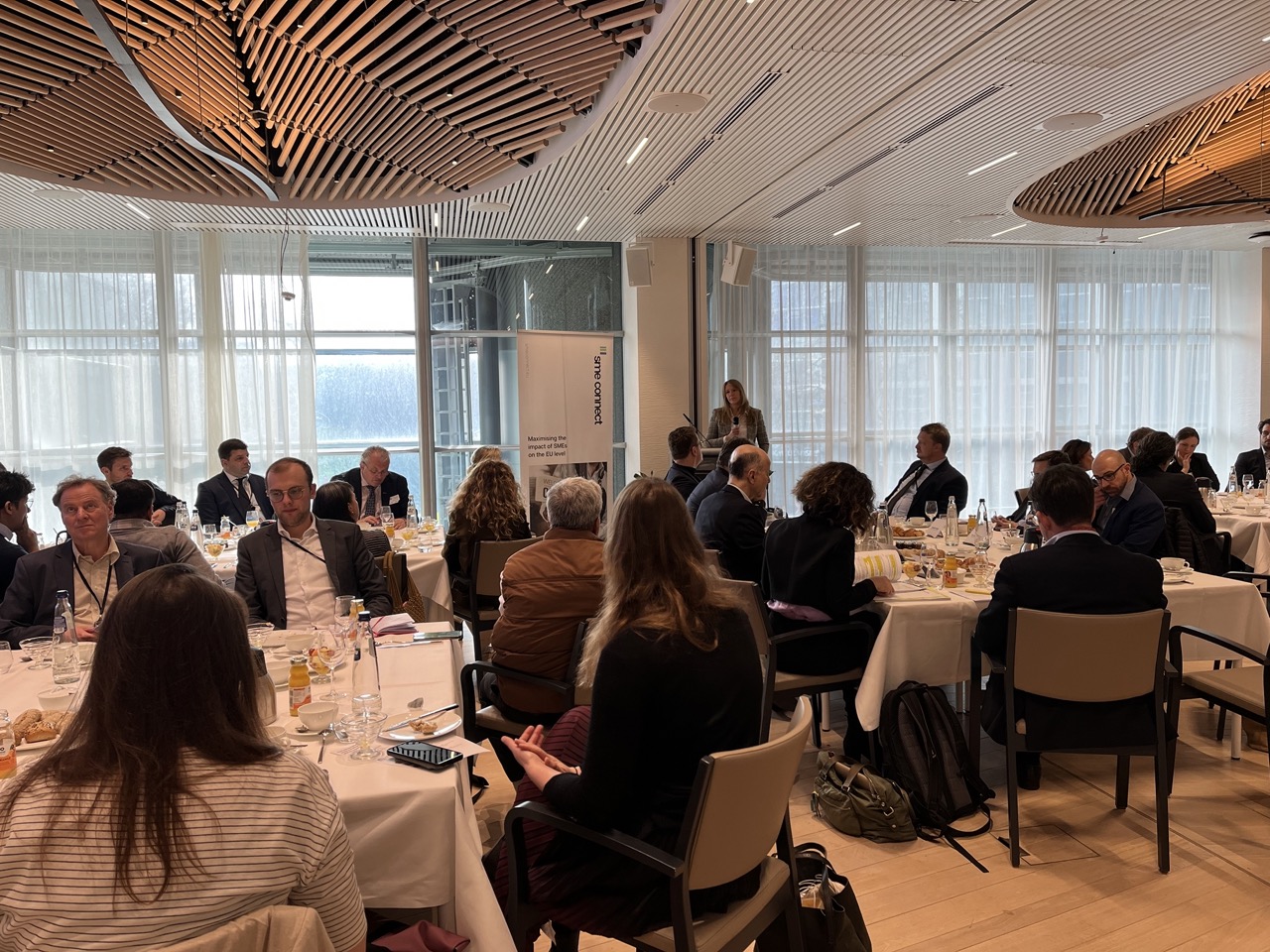
Talking from the industry perspective, FREDERIKE KREBS highlighted the pivotal role of the mechanical and plant engineering industry in driving the green transformation in Europe. She emphasised the complex challenges faced by SMEs in analysing and addressing PFAS usage within their supply chains, focusing attention on the potential disruptions to product manufacturing and maintenance. Industry’s support for preventing PFAS release into the environment is important, while more nuanced regulatory approach based on comprehensive scientific risk assessments and clear distinctions between industrial and consumer applications is crucial. Expressing concerns about the short transition periods and planning uncertainties, Frederike stressed the need for longer transition periods to explore alternative materials thoroughly. While acknowledging the importance of seeking alternatives, she cautioned against the misconception that viable alternatives readily exist, especially considering the unique performance characteristics of PFAS materials. Frederike urged for a careful evaluation of alternatives based on specific criteria, considering factors such as lifecycle adjustments and potential increased costs or emissions.
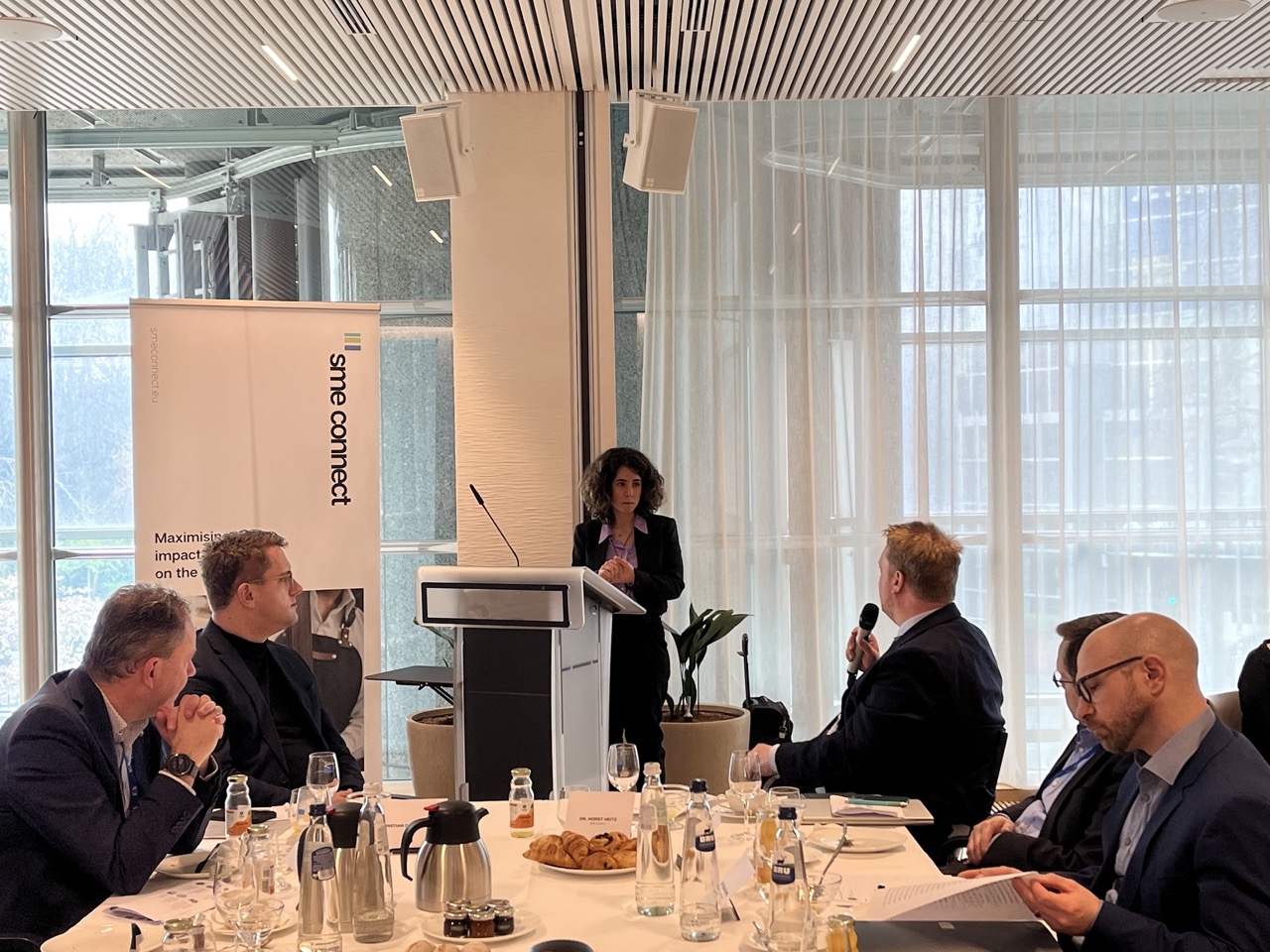
ATHINA GIANNOUTSOU, representing pharmaceutical companies, stressed the determining role of SMEs in driving innovation, especially in combating global health challenges. She highlighted how a broad PFAS restriction could disproportionately affect SMEs due to their limited resources and focused research areas. Acknowledging environmental concerns, Athina emphasised the necessity of PFAS across medicinal product production stages, ensuring sterility, quality, and safe delivery to patients. She warned that a PFAS ban could disrupt medicinal product availability in the EU, impacting patient access and industry competitiveness. She highlighted challenges in finding alternatives and called for time-unlimited derogations to support innovation and patient-centered development. Athina encouraged policymakers to prioritise patients needs and provide regulatory flexibility to ensure continued access to essential medicines while considering long-term impacts on innovation in the pharmaceutical sector.